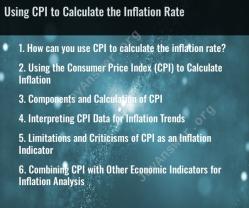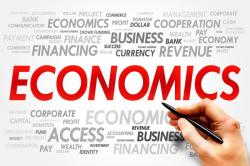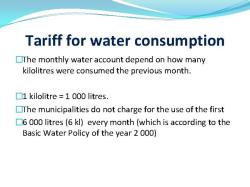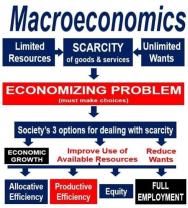What is the ultimate objective of macroeconomics?
The ultimate objective of macroeconomics is to understand, analyze, and influence the overall performance of an entire economy. It focuses on studying the aggregate economic variables at a national or regional level, as opposed to individual markets or specific industries. The core goals of macroeconomics include:
Economic Growth:
- Macroeconomics aims to understand and promote sustained and stable economic growth over time. Economic growth is typically measured by the increase in a country's Gross Domestic Product (GDP).
Full Employment:
- Achieving full employment, where the labor market is operating efficiently, and a minimum level of unemployment exists, is a key goal of macroeconomic policy. This involves understanding and addressing factors that affect employment levels.
Price Stability:
- Macroeconomics seeks to maintain price stability to avoid inflation or deflation. Moderate and stable price levels contribute to economic predictability and help in planning and decision-making.
Stable Currency and Balance of Payments:
- Maintaining the stability of a country's currency and achieving a balance in international trade are important macroeconomic goals. This involves managing exchange rates and addressing trade imbalances.
Income Distribution:
- Examining and addressing issues related to income inequality and the distribution of wealth within a society is another concern of macroeconomics. Policymakers may aim for policies that promote a more equitable distribution of income.
Macroeconomic Stability:
- Ensuring overall stability in the economy, which includes stability in output, employment, and prices, is a fundamental objective. This stability contributes to a healthy economic environment.
Interest Rate Management:
- Central banks use monetary policy to influence interest rates, aiming to control inflation, stimulate economic activity, or respond to economic downturns.
Government Fiscal Policy:
- Governments use fiscal policy, involving taxation and government spending, to influence economic activity and stabilize the economy during periods of recession or inflation.
Financial System Stability:
- Macroeconomics is concerned with the stability of the financial system, including the banking sector, to prevent financial crises that can have widespread economic impacts.
Global Macroeconomic Coordination:
- Given the interconnectedness of economies, there is a growing emphasis on global coordination to address issues such as international trade, financial stability, and economic development.
In summary, the ultimate objective of macroeconomics is to achieve and maintain overall economic stability and prosperity for a nation or region. By understanding the interplay of various economic factors and implementing appropriate policies, macroeconomics aims to foster an environment conducive to sustainable economic growth and well-being.
What overarching goal does macroeconomics aim to achieve?
While there isn't one single, universally agreed-upon overarching goal for macroeconomics, there are several key objectives that are generally seen as important:
1. Stable Economic Growth: This is the most common overarching goal, as sustainable economic growth leads to increased living standards, more job opportunities, and improved public services. It's typically measured by indicators like Gross Domestic Product (GDP) growth.
2. Low Unemployment: Ideally, everyone who wants to work can find a job. High unemployment leads to hardship for individuals and families, and also reduces a nation's overall economic output.
3. Price Stability (Low Inflation): Moderate and predictable inflation is generally considered positive, but uncontrolled inflation can harm the economy by eroding the value of savings and making financial planning difficult.
4. External Balance: This refers to a healthy balance of payments between a country and the rest of the world. Ideally, exports and imports should roughly balance out, preventing excessive build-up of debt or foreign currency reserves.
5. Equitable Distribution of Income: While this isn't always explicitly stated, many economists and policymakers see a fair distribution of income as important for social stability and overall well-being.
It's important to note that these goals can sometimes be in conflict. For example, policies that stimulate economic growth might temporarily increase unemployment, and controlling inflation can sometimes come at the cost of slower economic growth. Therefore, achieving all of these goals simultaneously requires careful balancing and trade-offs.
Ultimately, the overarching goal of macroeconomics is to promote the overall well-being of a nation's citizens by managing the economy in a way that fosters stability, prosperity, and opportunity for all.
I hope this clarifies the complex and multifaceted nature of macroeconomic goals!













